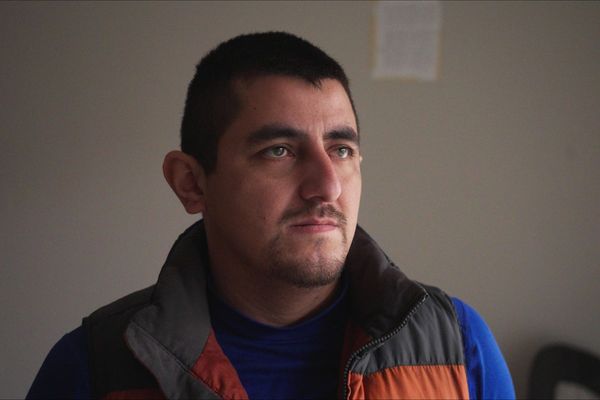
The Riverside has been no stranger to the sight of empty seats in recent years, but on Saturday those that surrounded the 700 or so Chelsea fans who had managed to buy tickets before Roman Abramovich was sanctioned by the UK government told not of Middlesbrough’s troubles but a more poignant story of the state of English football.
Football’s capacity to normalise the most ludicrous scenarios is remarkable. It is only three weeks since Abramovich declared his intention to hand over “stewardship and care” of the club to its trustees and yet that already feels at least two major news cycles ago. The idea that Chelsea have to be parted from their owner because they have, for almost two decades, been a pawn in a far greater game has been generally assimilated.
We have done the weary horror, the ‘what-have-we-become?’ of the league game against Newcastle. This was the first domestic away game where the sanctions had an impact on ticket sales, but there will be gaps at home games, a complete absence of away fans and the possibility of a half-empty Wembley for the semi-final, depending how the FA can organise ticket sales – which are usually conducted through the club. At some point the impact on ticket sales will stop being mentioned. Then there will be a new owner and a concrete new reality to get used to.
The current crisis has been generally assimilated – but not yet universally. There remains a sense that some elements of the club have not fully accepted the reality of the present situation, the fact that they have been granted special dispensation to carry on playing that would not ordinarily be granted to the majority of businesses.
Attempts to have the game played behind closed doors on the grounds of “sporting integrity” were rightly derided and ultimately withdrawn. Some fans, the vocal minority who use photographs of Abramovich as their social media avatars and get themselves interviewed on vox pops, persist in seeing the whole tragedy of Ukraine through the lens of football, as though Chelsea are the victims of some complex conspiracy and the war just a useful excuse to confound them.

The vast majority of the Chelsea fans at the Riverside, it should be said, stood and joined the pre-match applause for Ukraine. A banner on the seats at the front of the stand read “Tuchel for PM” – something suggested by Joe Cole earlier in the week – and it says much for the statesmanlike way in which he has handled an extremely awkward period that the instinctive reaction to the sentiment is that he has the humanity and basic decency, the sense of responsibility, that used to be a prerequisite for leaders.
After all the talk of Chelsea travelling to Middlesbrough by bus, they ended up flying to Teesside International – only the most cynical, though, would think that they have been over-dramatising their immediate plight to gain public sympathy. For now, though, the storm remains that is yet fully to break. From a playing point of view, life has so far, bar a few pointed chants from opposing fans, gone on largely as normal, whatever the threats may be for the future, with Chelsea winning every game since Abramovich announced his intention to step away from the club. But there is also a secondary timeframe. While geopolitics is going through one of its phases of acceleration, football retains the familiar rhythms.
Last time Romelu Lukaku started a game for Chelsea was in the fifth round of the FA Cup against Luton, when he was just a misfit £100m striker, rather the costliest human resource of a sanctioned business. He scored then, as he had scored against Chesterfield in the third round, and got his third in the competition this season after 19 minutes, touching in a Mason Mount cross.
From that point, frankly, this was a very straightforward afternoon for Chelsea. Middlesbrough never looked to have the quality to really trouble them, while Hakim Ziyech and Mason Mount had little problem finding the space that allowed them to slice Boro apart.
On the pitch, it was all rather anti-climactic, but with Chelsea the story these days is only partially about that. Their present reality was written, the red plastic seats in the south-east corner of the ground.







